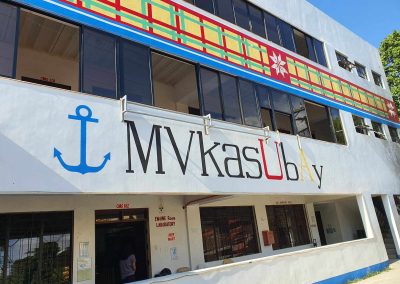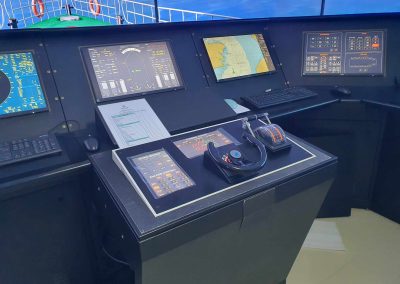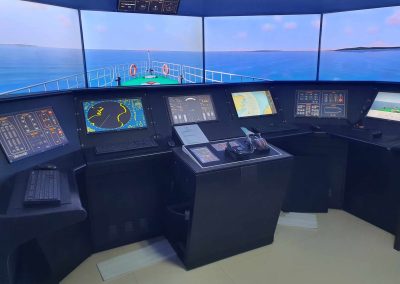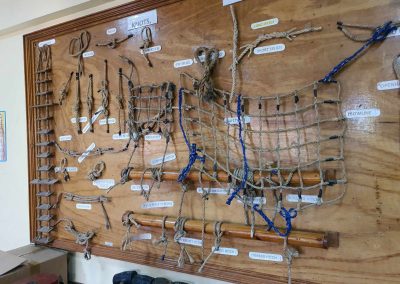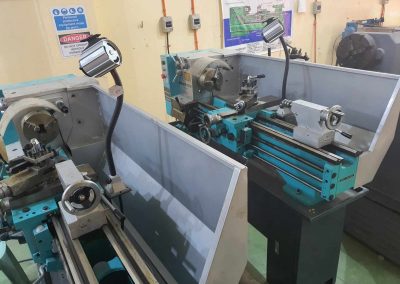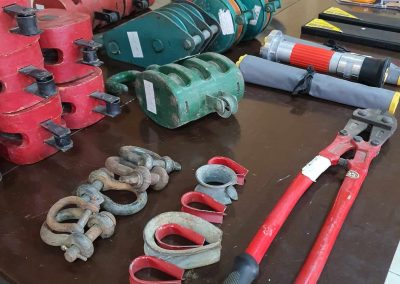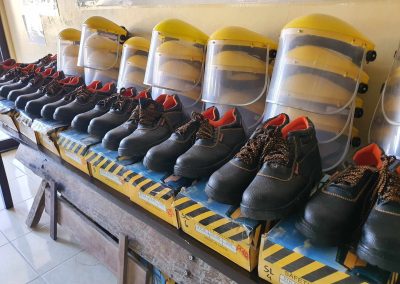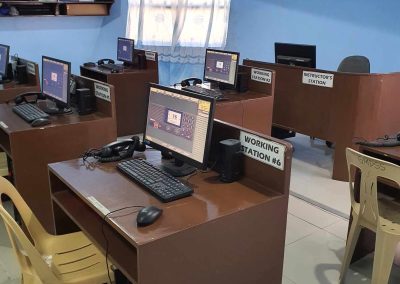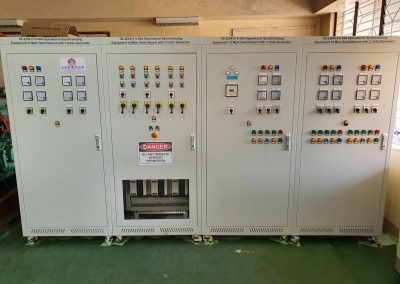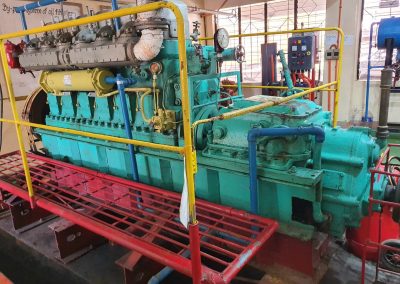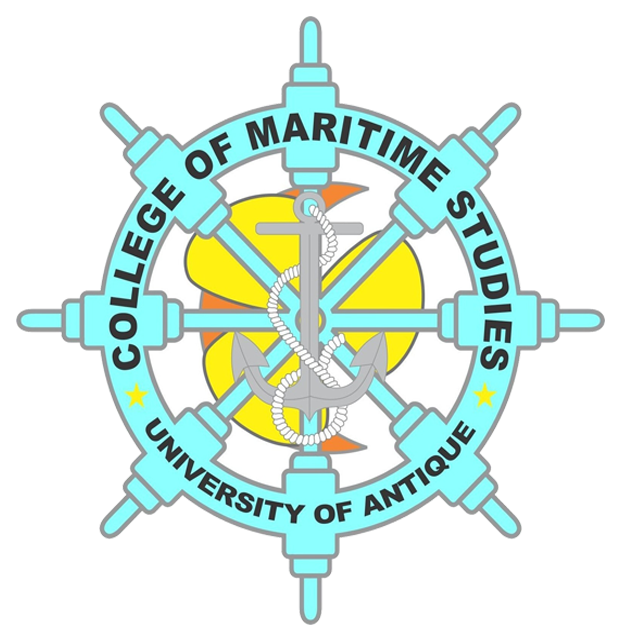
College of Maritime Studies
Overview
The University of Antique College of Maritime Studies is an academic institution in the Philippines that offers courses and programs related to maritime education and training. It focuses on providing students with the knowledge, skills, and qualifications necessary for careers in the maritime industry, including navigation, and marine engineering, The college likely offers a range of undergraduate to meet the needs of aspiring seafarers and professionals in the maritime sector.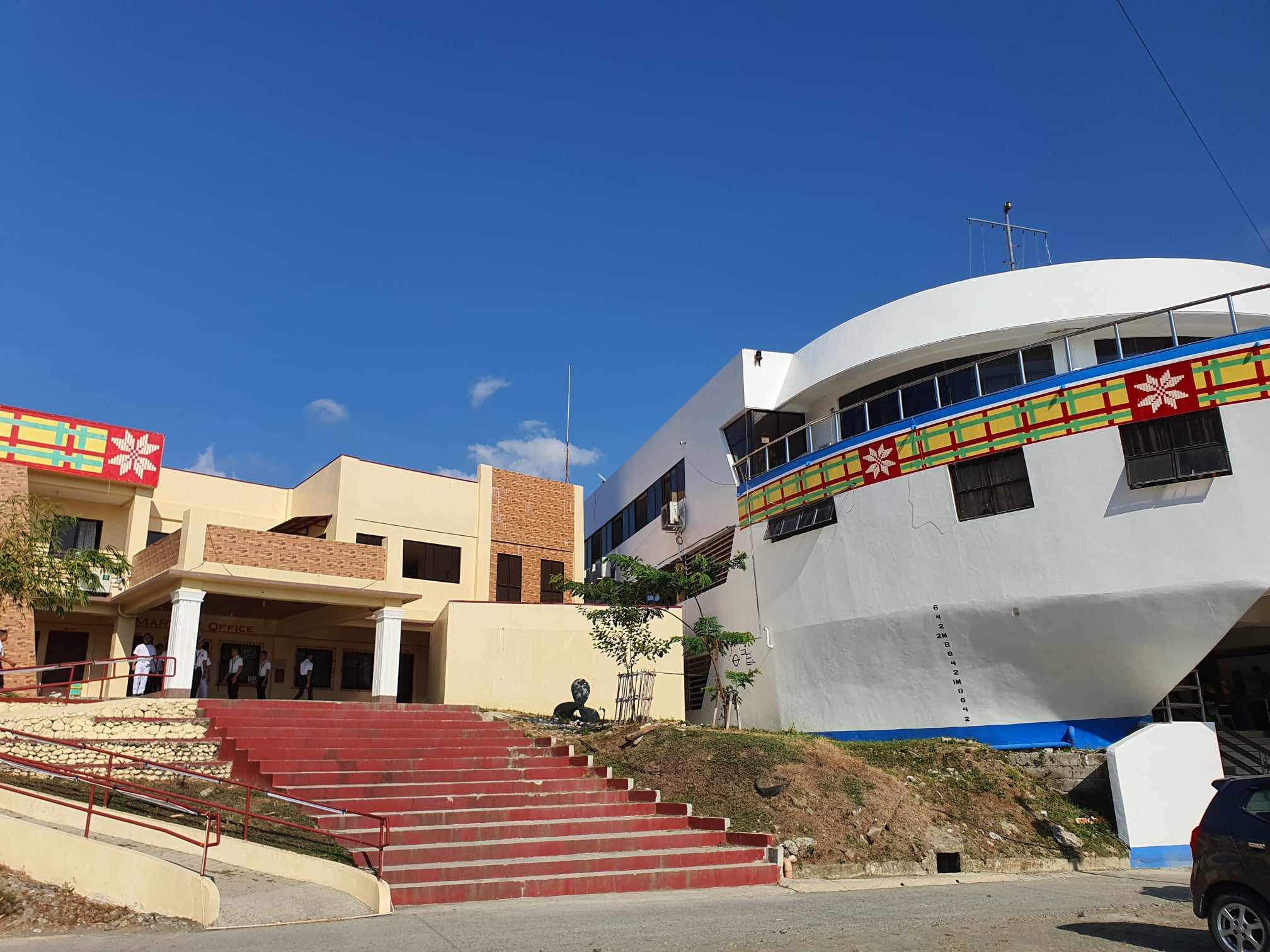
Bachelor of Science in Marine Transportation
Bachelor of Science in Marine Transportation is a degree program focused on the study of maritime logistics, transportation, and operations. It typically covers a range of subjects related to shipping, navigation, port management, maritime law, marine safety, and environmental protection.
Students in this program learn about various aspects of the maritime industry, including vessel operations, cargo handling, international trade regulations, navigation technologies, and maritime economics. The curriculum often includes both theoretical coursework and practical training, such as internships or sea time aboard vessels.
Graduates with a degree in Maritime Transportation can pursue careers in various sectors of the maritime industry, including shipping companies, port authorities, logistics firms, maritime regulatory agencies, and maritime research institutions. They may work as ship captains, port managers, marine surveyors, logistics coordinators, or maritime safety inspectors, among other roles.
Bachelor of Science in Marine Engineering
Bachelor of Science in Marine Engineering is a specialized degree program that focuses on the design, construction, operation, and maintenance of ships, and other marine vessels and systems. It combines principles of mechanical engineering, naval architecture, and marine technology to prepare students for careers in the maritime industry.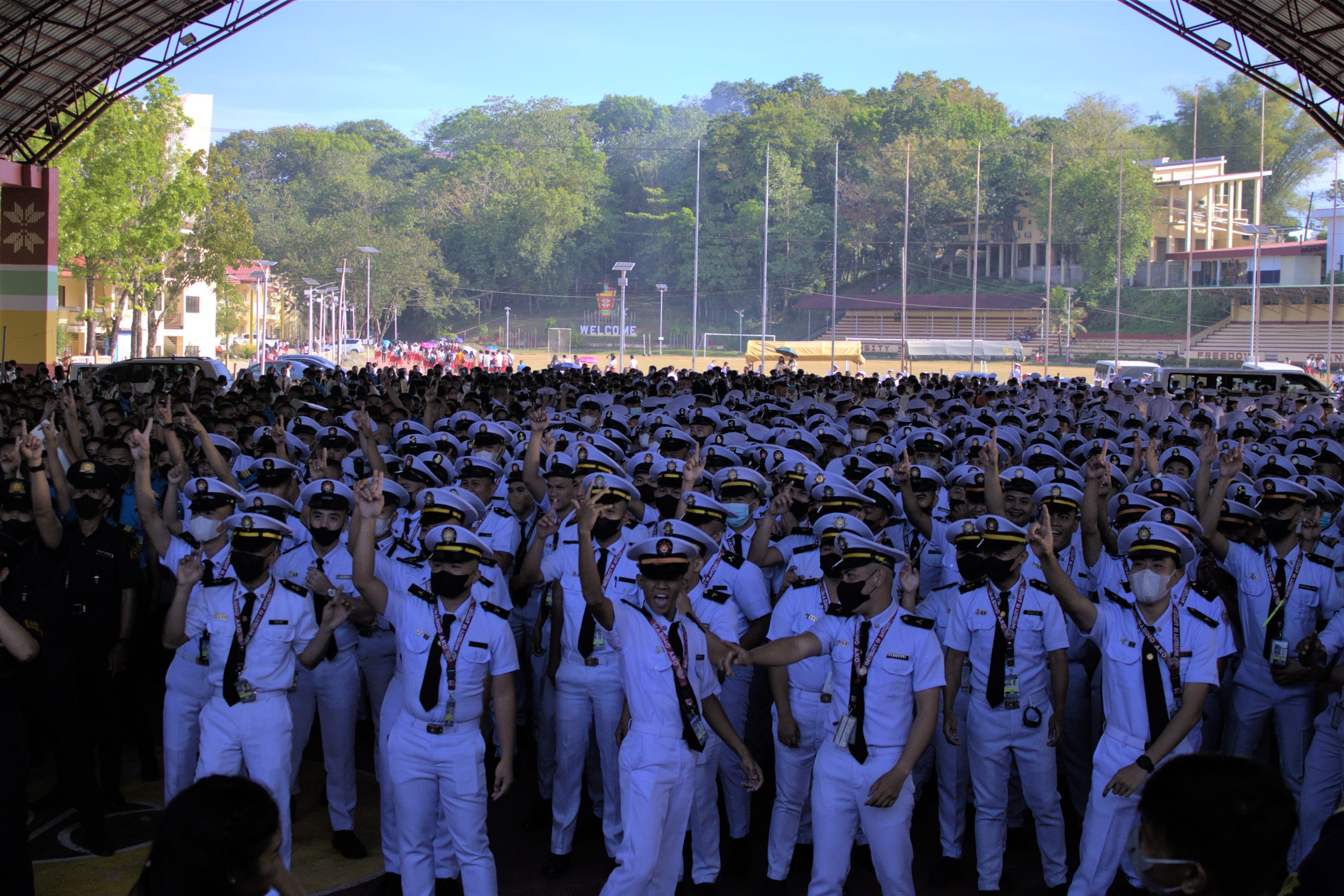
Students in this program typically study subjects such as marine propulsion systems, ship design and construction, marine materials and corrosion, marine power plants, fluid mechanics, thermodynamics, marine electrical systems, and marine control systems. They also learn about maritime regulations, safety standards, environmental protection, and sustainable practices in marine engineering.
Throughout their studies, students may engage in hands-on projects, laboratory work, and internships to gain practical experience with marine engineering technologies and practices. Some programs may also offer opportunities for students to participate in sea training aboard vessels to apply their knowledge in real-world maritime environments.
Graduates with a degree in Marine Engineering can pursue various career opportunities in the maritime industry, including roles such as marine engineer, naval architect, ship designer, marine systems engineer, offshore engineer, marine surveyor, and marine project manager. They may work for shipbuilding companies, marine engineering firms, offshore oil and gas companies, maritime research institutions, government agencies, or consulting firms.
Goals:
To elevate the university into national and in ternational distinction, it shall endeavor to:
- Deliver quality instruction of international standards;
- Implement innovative and research development system;
- Implement innovative and research development system;
- Undertake responsive and collaborative means for technological transfer
- Develop viable and sustainable resource generating strategies; and
- Establish effective, efficient, and supportive administration.
Objectives:
The University shall be able to:
- Ensure that at least 30% of the faculty members are doctorate degree holders and the rest are master’s degree holders in their respective fields of specialization by 2022 and upgrade researchers’ and extensionists’ capability through continuous trainings and exposures:
- Provide state-of-the art physical and instructional facilities;
- Re-align curricular offerings preferably towards science and technology – based courses;
- Achieve at least level 3 accreditation status in all programs;
- Publish researches in national and international referred journals;
- Strengthen national and international linkages with public and private institutions;
- Formulate and implement investment plans for financial;
- Collaborate with funding agencies for resource generation;
- Conduct periodic management review for quality delivery of service to the stakeholders.
Admission and Retention Policies
General Admission Requirements
The College of Maritime Studies shall only accept students based on its carrying capacity, taking into account the number of facilities and equipment it owns and the faculty-to-student ratio.
Students intending to enroll in the BSMT or BSMARE program shall comply with the minimum requirements for admission as follows:
Academic Qualifications:
a. Senior High School graduate;
b. Students who graduated in High School on or before June 2016. However, to ensure college readiness of the students enrolling under the new higher education curricula, the CMS may require bridging program for the general education component (CMO No. 10, S. 2017):
Student Admission
a. General Admission Policy (University Code, Chap. 3, Art. 9)
Section 1. No qualified student shall be denied admission to UA by reason of age, sex, nationality, religious belief, or political affiliations; however, a student with special needs will only be admitted provided the University has the capability to cater to his/her needs.
Section 2. Every applicant for admission to the University degree programs must meet the requirements for admission prescribed by the University and its academic unit concerned including passing the entrance examination required by the University.
Section 3. Every student seeking admission shall sign the “Pledge of Good Conduct”. Refusal to take the pledge or violation of its terms shall be sufficient cause for denial of admission.
Section 4. Every applicant for admission shall undergo a thorough health examination as prescribed by each college. No person shall be admitted who is found to be suffering from a dangerous, communicable, contigious or infectious disease or who is physically unfit as determined by the accredited medical officer.
b. Admission Requirements for the College of Maritime Studies IBOR Resolution No. 58. Series of 2022)
1. Applicants seeking admission to the College of Maritime Studies must meet the cut-off score of 15.
2. Applicants must have an average grade of 80% and above.
3. Passed the pre-qualifying exam and the personality test specific for the College for those who meet the cut-off score of CMS in the University Entrance exam. Students will be ranked according to the capacity of the program for the first year, shifters, and transferees.
4. Passed the interview and evaluation by the Chairperson of the Program.
5. Qualified applicants must comply with all the following requirements:
New Students:
a. Original and photocopy of Form 138 or High School Report Card b. Original and photocopy of Certificate of Good Moral Character
c. Original and photocopy of Medical Clearance
d. Three (3) long white folders
e. Authenticated Copy of NSO/PSA Birth Certificate (2pcs)
f. Original and photocopy of the Entrance Examination result
Transferees:
a. Original and photocopy of Certificate of Honorable Dismissal
b. Original and photocopy of Medical Clearance
c. Authenticated Copy of NSO/PSA Birth Certificate (2pcs)
d. Original and photocopy of Transcript of Records for evaluation purposes
e. Three (3) long white folders
f. Original and photocopy of the Entrance Examination result
g. Updated Curriculum Checklist w/grades evaluated/credited by the program head
Old Students/Quitters:
a. Clearance of the last/previous semester
b. Updated Curriculum Checklist w/ grades evaluated/credited by the program head
Result of Entrance Examination
Students for admission to the University degree programs must meet the requirements for admission prescribed by the University and its academic unit concerned including passing entrance examination required by the University (Faculty Manual 2014, Section 2.1).
Qualifying Examination both in Written and Oral
Every applicant for admission to the maritime programs must pass the qualifying examinations both in written and oral form prescribed by the College of Maritime Studies (CMMC No. 1
series of 2019, Section 42).
University Entrance Examination (using Otis-Lennon School Ability Test)
The programs of Bachelor of Science in Marine Transportation (BSMT) and Bachelor of Selenem in Manine Engionering (15MarE) observe selective admission based on Placement Test Score of at least Stanine 15.
Eligibility to Transfer for Maritime Students
The following are eligible to transfer to the University of Antique-College of Maritime Studies:
1. A student who is transferring from an authorized maritime higher education institution, subject to completion/satisfaction of physical and medical fitness test, pursuant to Regulation 1/9 of the STCW Convention 1978, as amended, to be conducted by a DOH accredited Medical Practitioner,
2. A student who is transferring from a maritime higher education institution whose programs are subjected to closure proceedings or are not authorized to be offered to a recognized MMEI, subject to completion/satisfaction of the following requirements:
Physical and medical fitness test, pursuant to Regulation 1/9of the STCW Convention 1978, as amended, to be conducted by a DOH accredited Medical Practitioner, adopt PEME format Pass the written and practical assessment of prior learning (professional courses); retake failed courses in written and practical assessment
3. A student who is transferring from an authorized maritime higher education institution whose admission standards requires new entrant on the First Year Level only, shall abide by the UA – CMS Admission policy; and,
4. A student coming from outside the country must be evaluated in accordance with existing statutory and regulatory requirements prior to admission.
5. Regular transferee is treated as a new applicant and bound to comply with the policy and procedure of admission.
6. No student from a non-recognized MHEI shall be accepted, however, the student can be admitted as a new applicant or first-year level in the curriculum.
Guidance System
Academic Advising is done by the CMS which provides curricular planning and guidance to undergraduate and graduate students in the BSMT and BSMarE programs. The Office of the Dean in cooperation with the CMS Dean of Discipline provides the intervention for students disciplinary issues; develop appropriate programs to promote positive behavior, monitor, develop and implement student behavioral contracts, keep a log of students’ attendance and truancy issues, and communicate disciplinary concerns to parents and staff.
General Retention Requirements
| Failure (for Non-Major Courses) | Academic Status |
Allowable Load for the Following Semester
|
| 1 course |
Warning
|
Less than 3 units from the normal load |
|
2-3 courses
|
Probation
|
Allowed for 15 units only |
|
4 or mare courses (cumulative)
|
Permanent disqualification
|
Not allowed to enroll |
|
For Major Courses
|
||
|
1 course with a grade below 2.0 (85)
|
Less than 3 units from the Normal Load | |
|
2 courses with grades below 2.0 (85)
|
Less than 6 units from the Normal Load | |
|
3 courses with grades below 2.0 (85)
|
Less than 9 units from the Normal Load | |
|
4 or more courses with grades below 2.0 (85) (cumulative)
|
Permanent disqualification from the College | Not allowed to enroll |
|
1 failing grade (5.0) in a major course
|
ermanent disqualification from the College | Not allowed to enroll |
| Dropped (unofficial) grade in a major course | Permanent disqualification from the College | Not allowed to enroll |
BSMT FacultyPermanent Instructors
Part-time Instructors
|
BSMARE FacultyPermanent Instructors
Part-time Instructors
|

